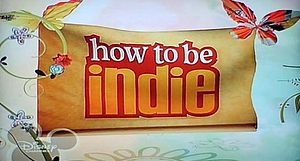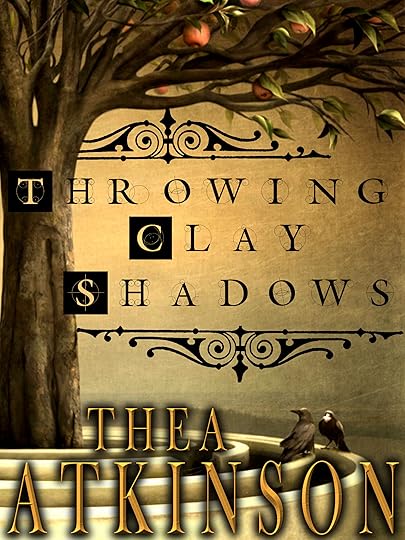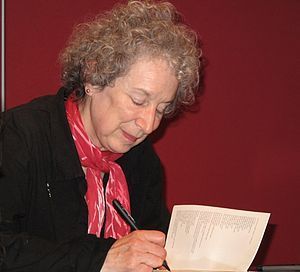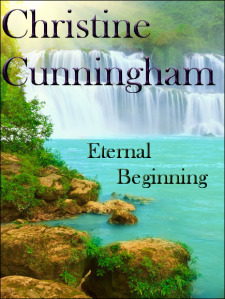Thea Atkinson's Blog, page 13
February 19, 2012
Creating a thrilling read through dialogue and character
What a thriller writer has to say about dialogue and character
By Mel Comley

Mel Comley
When Thea asked me do this article I thought, hmm… I'll give it a go.
But when I got down to writing, I found it far harder than I'd anticipated.
I'm one of those writers who used to hate using dialogue but who now loves it. I have to say that I'd rather create a dialogue scene than a descriptive scene any day.
I think not only does it balance a book/novel out but also makes for a more interesting read.
At the beginning of my journey I was told that my writing consisted of too much tell and not enough show. 
Now, I tend to use dialogue as a form of getting around this all too familiar issue.
But dialogue has a far greater importance in the whole story-telling scenario, it's main job is to make it is easy to differentiate between the characters. In real life we all speak differently so it's equally important that as writers we make our characters do the same.
Yes, it gets harder the more books/novels you write, to try and create new characters who can easily be identified by what they say. But it's an absolute must in our line of business.
As writers we all strive to make our books and our characters stand out from the rest. Having distinctive characters, using realistic and not stereotypical dialogue helps us to achieve these results, hopefully!
I spend hours playing around with a character before installing them in my books. I write down each character and an example of what each of them might say.
When I was learning about the art of writing I had a book full of different exercises. One of these exercises was to name all your characters and in the following column write down what each character would say for a certain item or room. For example: In the UK we have a tendency to use different words for the room in which we relax in after we've completed a hard day's work, depending on what class we are. It can be known as a lounge (used by middle-class people) sitting room (usually used by the lower class.) Whereas in the good old days, the same room would have been known as a Parlour and was only really used for entertaining purposes on special occasions.
Take that one step further, during the use of dialogue you can also hint at the different dialects people use. An example of this is again using the UK terminology: A person speaking from in the extreme north of England would say 'Away with ya,' and they tend to call people 'Pet' all the time. But in the south we have a saying that people sound like country bumpkins and we tend to imagine them talking with a piece of straw hanging out of the mouths, saying things such as: 'How's you doin', me luvly?' 
So for me there really is only one way to write a novel and that's to write a character driven novel. We all need to see our characters come alive on the page and help create a stunning novel that thousands will read.
I receive numerous messages daily either via email or on Facebook from fans telling me they love the Lorne books. I refer to my thrillers as 'The Justice' series but it makes me happy knowing that I've done my job by creating a wonderful and distinctive character who is loved by many.
-30-
My bio.
I am a best-selling thriller writer who has started dabbling in different genres. I live in Northern France with my two crazy dogs who love to drag me round the village every morning. As a writer it's the only form of exercise I get.
 You can find out more about my books on my website: www.melcomleybooks.com
You can find out more about my books on my website: www.melcomleybooks.com
or my blogs
http://melcomley.blogspot.com
http://melcomleyromances.blogspot.com
Follow me on twitter @melcom1
Or on Facebook.
http://www.facebook.com/pages/Mel-Comley/264745836884860
Related articles
Conflict in Dialogue (writerswritedaily.wordpress.com)
Writing: Dialogue Is Not A Dirty Word (pittsburghflashfictiongazette.com)
Writing Believable Dialogue – 2. Style Choices (bardicblogger.wordpress.com)
Speaking of character…A plea to newbie writers who plan to publish (theaatkinson.wordpress.com)
Filed under: guest blogging








5 days of tips to developing character with dialogue: or dialogue to the nth power
 You all are in for a treat this week.
You all are in for a treat this week.
And I mean it.
I've loaded up a full 5 days of authors talking about dialogue and character. If you are a writer struggling with dialogue (and who doesn't) you'll get the skinny on what drives the dialogue from a thriller writer, fantasy, steampunk perspective.
If you're a reader, you get to see the behind-the-scenes process that streaks through an author's psyche as they work to deliver realistic characters you can love.
You know I don't like to flood in boxes with blog posts…but I think it's an exciting series with something for everyone to mull over. Please make a note to visit and if you like, please do share. These authors are all worth following.
Schedule:
Feb 20 is bestselling thriller author: Mel Comley discusses dialogue
Feb 21 is the incomparable Walter Schuler : a gent whose world creation is just delicious.
Feb 22 we have Vivienne Tuffnell who writes from a more literary place about characterization and periphery characters
Feb 23 Gordon Bonnet will discuss dialogue from a speculative fiction writer viewpoint. (I love his blog)
Feb 24 is steampunk author AJ Barnett who offers up a whole heap of info on dialogue.
Related articles
5 Indie authors that give me hope for 2012: (Amanda Hocking notwithstanding) (theaatkinson.wordpress.com)
Conflict in Dialogue (writerswritedaily.wordpress.com)
Writing Believable Dialogue – 2. Style Choices (bardicblogger.wordpress.com)
Filed under: guest blogging








February 17, 2012
the Water Witch cometh: -or- what happens when the character wants more
 In April of last year I spent the entire month flashing around the blogospere in something I lovingly called: the blogstreak. I wrote 30 flash fiction pieces for 30 blogs and let them pick the genre. It stretched my writing muscles, I can tell you.
In April of last year I spent the entire month flashing around the blogospere in something I lovingly called: the blogstreak. I wrote 30 flash fiction pieces for 30 blogs and let them pick the genre. It stretched my writing muscles, I can tell you.
Well, you know me by now. I'm all about character. (OK, so sometimes I DO read the odd escapist bit of fiction for the pure story of it. The Sookie Stackhouse series comes to mind, and then I realize that it's characters that pull me back time and again in that one too: that Eric. Yum. LOVE that character–OK. I'm digressing again)
So to get back to the point, one of those little pieces I wrote during the blogstreak lodged in my writer's teeth so to speak like a bit of popcorn kernel. Or rather: the character did. I had no idea what her name was, but she planted herself in my consciousness so solidly I am now writing out her full story–which I THOUGHT would be a novella, but I now fear will be a novel AND: I'm realizing it just might be a series.
Water Witch is coming along nicely. I even created a cover to propel me visually forward.
As a novella, I believe it'll be ready by April. If it continues to stretch, I fear it will be far longer. I'm just not sure where to cut the durn thing and am editing like crazy.
For now: since this is a character blog, I thought I'd at least introduce you to Alaysha as I first met her. (And tell me, honestly, wouldn't YOU have to explore her deeper than a flash?)
Let the Rain Fall
The scene was a sickening one, and in her early days, she would have been bothered by such gruesome images of war. Now, 40 years after she'd ridden her first beast to battle, she was hardened to all the death. Hardened like the blade she carried on her back — not that she needed a blade to take a life.
A water witch needed nothing to aid her in killing.
She could draw the fluid from a man's body in three seconds, count the time with barely a breath between each before they collapsed into a pile of leathered skin with bones so brittle she knew they crumbled to sand inside the left over husk. The eyeballs turned to blackened raisins that fell from the sockets and plopped onto the earth.
When she was young, she thought they were the seeds of a man's soul, that some god would rejuvenate them. She expected to see another body sprout from where they had fallen.
They never did.
So she hardened herself to all those deaths she'd caused — all those seeds left unspent in the ground. All for the safety of a runt of a man who had never bothered to learn her name.
"Witch," he called her. "Witch, I need you," he'd say when he wanted to vanquish an enemy. And there were many enemies.
I need you. I want you. I want you and need you to kill, and so she had without question for years. A girl always obeyed her father, after all.
She remembered her first battle. All of those images that she stored away from her spot in a hanging basket slung like a saddlebag from her father's war beast. She was young — just seasons old, but a water witch had a long memory to go along with the gift — a necessity if she was to draw water from a vessel. There would need to be a vivid account of pathways and exits. And so she could still see that first pore, that first tear duct, that sweat gland — and deeper, that cell membrane that protected the precious water. She found that if she was significantly hungry, she could speak to those portals and pull fluid from them with an ease that almost hurt her.
Killing was ugly business for a soldier let alone a two-year-old. Her father assumed such ugliness was part of her nature.
"Will it," he told her. And she did. So strong was her power over fluid that men dropped to their knees in droves, the raisins from their sockets plomping onto the ground like raindrops on thirsty earth: seeds waiting for nourishment.
Storm clouds gathered as the last enemy fell and pelted those left standing–those behind her father–with hail, but no new men sprouted to replace those she'd taken. A hunger rumbled with a terrible ache in her belly and left it feeling like one black cavern that food could never fill — not ever again after that.
She lived in fear that one of those seeds would trail like a pumpkin's stem and turn into a man's arm that would sneak forward through the years to reach her finally and strike her down.
And then she wished for it.
And then she prayed for it.
So this scene, nearly 40 years after that first battle was especially gruesome. She sat her beast instead of being side-bagged on it. Her father, furious at his serfdom for a rebellion gone horribly wrong, yelling, weeping, spitting his revenge at their audacity.
"Will it," he told her.
She drew water from them — each of them — soldiers, peasants, men, women — and yes, even children. She watched every living thing from plant to bird to man in this, her father's serfdom, become petrified in an instant. All that remained were stones of different sizes and sand of different piles, and a hundred thousand little raisins peppering the arid earth as if it was a spicy bannock for a meal never to be eaten.
And in that moment she knew some men should never come back. That, that was the secret the gods kept from her. Those seeds, those raisins, should never sprout for they'd had their season.
The storm clouds gathered above her. Her father grunted his anger; it wasn't enough, this revenge. They deserved worse, not this quick, painless death he'd ordered. He should have done more; she should have drawn the water slower, made them suffer.
She looked at him, felt the drops of water from the clouds plop onto her shoulder. The rain on her cheeks felt hot, then cold as it evaporated. The clouds sucked back into themselves, afraid of the power of the witch that could thirst the water from the very sky.
"I'm hungry," she said to him as she climbed down from her beast. The earth felt good on her bare feet. She'd never been allowed to have shoes.
"Eh?" Her father gave her a sharp look. She'd never deigned speak to him except to answer yes to his whims.
"I hunger."
Even as his mouth opened to deny her, he spilled from his beast, so many particles of sand running into his boots as they hit the ground, dumping into the sidesaddle she'd spent so many months in while they were at war. His ice green eyes shriveled and fell as tiny raisins to the earth.
She knelt to one knee and scooped them up, giving them a quick study, making sure they were indeed the seeds of his soul.
And then she popped them into her mouth, chewed. And for the first time in her forty years, she felt satisfied.
-30-
Filed under: Uncategorized








February 15, 2012
Moving from nonfic to fiction
By Fred Vaughn

Buy on amazon
After writing seven books over the years as a professor of Canadian constitutional law and political philosophy, on such arcane subjects as the Hegelian influences on the Supreme Court of Canada, I decided to write a novel. I had a subject that was tailor made for fiction and unsuited to non-fiction. I wanted to reach back in time more than half a century and give an account of my experience as a young Jesuit seminarian and how the once great Society of Jesus (Jesuits) had experienced a serious decline in its numbers: a great exodus in the numbers of those who were ordained and those who were still in formation occurred after 1965. I wanted to hide behind the wall so neatly provided by fiction; the thoughts of footnoting and getting every event in the Society's history bang on over half a century, was too daunting.
Well, I soon discovered that the transition was more difficult than I had anticipated. For a long time I found myself lost in the tangles of the "p o v"….which I quickly learned was a critical part of writing a novel. As a seasoned non-fiction writer I spoke and moved the "characters" around as a marionette, restricted only by the historic time lines. In my latest non-fiction book, Viscount Haldane: 'the Wicked Step-father of the Canadian Constitution," I was free to roam widely in the family archives like a child who found his way into the attic of the old family home and discovered in the dark corners covered with years of dust a treasure trove of letters, photographs and diaries about the Haldane family. This exciting romp through attic dust allowed me to bring into centre stage Richard Haldane's extraordinary mother, Elizabeth, and make her a major actor in the life of her son. As a result, I never enjoyed writing a book as much as I have this judicial biography of a philosophic Lord Chancellor. Imagine!
Finally, after a series of missteps through the uncharted fields of fiction, but with much gentle assistance from Thea Atkinson, my first work of fiction has appeared. Thea, however, bears none of the blame for the failures that remain in the finished product. I invite viewers to take a look at Retreat from Manresa: a Jesuit Story. You can see it on Amazon.com complete with the Rubens cover depicting St. Ignatius Loyola, the founder of the Jesuits. And, of course, I welcome comments.
Frederick Vaughan, email: fredvaughan@rogers.com
-30-
Related articles
Jesuit Oath… the Catholic Regime, the greatest CULT (promoteliberty.wordpress.com)
Flash Fiction: Internal Forces (worldwritsmall.wordpress.com)
St. Joseph Pignatelli, restorer of the Jesuits (archbishopterry.blogspot.com)
Filed under: guest blogging, writerwednesday exercises








February 12, 2012
What is an indie?

Image via Wikipedia
I had a ton of fun this weekend playing around with some movie making software you can get online. Xtranormal offers 300 bits up front to create a fun movie, so it cost me nothing. I'm no script writer and I really wasn't sure what I wanted to write. At first, it was a whopping 2 and a half minutes long and contained a long dissertation about what Indie really is along with responses to all the naysaying blurbs like: so if you're indie you can't be good enough to get published? (That one really burns me)
I left in some of it, but felt it just turned into a lecture, not a fun video, so I cut it back. I still kind of like it though. Maybe I'll do a series of these as a kind of therapy. Who knows? All I know is I had a bunch of fun playing with this, and it has become my new procrastinating tool.

Related articles
Indie vs Traditional: equal or not? (theaatkinson.wordpress.com)
3 Classic Rants Retold In Xtranormal + Plans for the Future (jygersrant.wordpress.com)
YA Indie Carnival – Books I'm Grateful for… (tgayer.wordpress.com)
Filed under: Uncategorized








February 9, 2012
The happy crappy ending: Or can you afford to write what you want?

Throwing Clay Shadows by Thea Atkinson
Every time someone that I know asks me what type of stuff I write, I end up floundering for a description. I like to call myself psychological thriller with literary leanings, but deep down in my heart I know that's not quite true. Psychological is supposed to be more exciting edge-of-your-seat kind of writing than tortured-soul-tries-to-find-its-way-to-the-light. If I was truly literary, I'd have some beautiful turns of phrase. I'd have breathtakingly meaningful analogy and metaphor. I'd have some deeper meaning that fit the theme to a T. When I think literary, I think Alice Munro, Margaret Atwood, and Barbara Kingsolver. There's enviable depth to all of those stories they pen.
In truth, all of these writers, famous for their beautiful rendition of literary, have some deeper value within their prose that enables them to stick closely to the intent of what they were trying to do in the first place. I don't think Alice Munro decides anymore whether or not she will let a character live or die, she just lets the character be, trusting in her skill to bring that character to the climax and resolution that's necessary. I imagine Margaret Atwood might still give some consideration to genre but only fleetingly because I've listened to her interviews and she is a woman of strength and determination and commitment and will write what she wants to write and will let the characters be what they want to be regardless of whether the rest of the world sees it as something that has mass appeal.
They can afford to write dark, light, heavy, fluffy, stinkers, or masterpieces because they are…well, they are who they are and because they've proven over their careers that they are darned good at what they do. I think at one time they might have thought about all those things like genre and market and sales, but I somehow think that's behind them. I think at this stage, they might even be doing all that by virtue of 'writer muscle memory.'

Image via Wikipedia
As a nobody, I really shouldn't be able to afford to do that; you know, write what I want without consideration of target. And yet as an independent author, perhaps that's what enables me to stick to my vision. I don't write chick lit. I don't write romance or fantasy. I don't even write literary, if I really defined term the way it's meant to be defined.
The truth is, I write what I write. If someone who has read me can come up with a description or a genre that fits, I'd be happy to hear it because I'm still floundering. The other truth is that no matter what the genre is that I think I'm writing in at the time, there's always some kernel of darkness within. And that always changes it: imagine writing about a youth in ancient Egypt trying to find his place in the world– you would suppose it's aimed for the young adult historical market, but if you realize that I've put in a bit about a priest who dips a little too intimately into the priest-in-training pool, you'd realize why I can't market Formed of Clay to young adults. (ahuh.)
So yes, I write dark sometimes. Well, all the time. It's not all dark, but you can bet there's some dark corner in there somewhere. I don't consider genre before I write. I just write what I want to. I think that handicaps me, but I also think it frees me as a writer to find pleasure in what I'm doing. If it doesn't sell, I have no one to blame but myself. And to be honest, I do blame myself quite a bit. grin.
I wrote a very large novel a few years ago that was really three books in one. To me, it just fit that the three stories over three different time frames and places in the globe had something to do with each other. I couldn't get interest in that book to save my soul.
When I decided to self publish to the digital world, I split that book into three. Formed of Clay became a nice little novella and Throwing Clay Shadows became a novel that stood on its own. The last one is still in edit stages. In its original incarnation, Throwing Clay Shadows was very much a downer book. Everyone died in the end. Kind of like Shakespeare. But then to liken myself to Shakespeare would be to throw myself back into that literary description that I'm unworthy of.
So who am I? Certainly not anyone who could write what she wants and then sell what she wants. That's the key. I can write whatever I want for as long as I want to do it, but if I ever want to sell it, I have to consider the people who will buy. And so I changed the ending to Throwing Clay Shadows to something that I would call: happy.
Yet something inside of me squirmed when I did it.
Not because I don't like happy endings, but because I just didn't think it was the right ending. I felt like it was a cop-out.
And you know what? That book doesn't sell any better or any worse than any of my other novels, despite me putting in a happy ending that would appeal to more readers.
I think there's a lesson there somewhere, but I'll be daggoned if I can put my finger on it. I think it might be just a little too shadowed even for me.
I welcome you downloading Throwing Clay Shadows and tell me if I did the right thing.
-30-
Related articles
Author! Author!: Margaret Atwood (insatiablebooksluts.wordpress.com)
Filed under: Thea bits








Twitter Follow love. Get a few: Leave a few
I love doing interviews; I meet so many nice people that way and can pass on their cool lil blogs. I did an interview over the weekend with Ashley Barron, who I met on Triberr and she was kind enough to post the interview straight away.
One of the questions was a neat one: what other writers on Twitter that I'd recommend and I noted as many as I could without filling the interview with handles of folks.
But this is my blog, so I'm gonna name a few more here: (incidentally, I've read a good deal of the books from this list too, and I'd vouch for them as well)
@kristenlambTX
@melcom1
@chrispetersenTX
@ajbarnett
@heatherdomin
@jhsked
@westofmars
@uksarahbarnard
@seb_Kirby
@pld73
Now go, follow. And feel free to add your own recommends in the comment section. If you vouch for em, I'll follow em.
Related articles
Things I Learned from 7 Days on Triberr (And why I left on day 8) (thegirlbehind.com)
Why Join Triberr? (bethtrissel.wordpress.com)
Filed under: Uncategorized








February 7, 2012
Got Villain? Use these 5 ideas to write him (or her) real
I love getting other writers' takes on how they create their villains, especially when the temptation is to make them purely bad. As a character driven writer and reader, I want to pity them, hate them, and understand them all at once. That's a pretty steep order for a writer to fill.
This Wednesday, I thought we'd get Christine Cunningham's view on villains, and she offered up a nice little list of things to consider when building the second most important character in a novel.
Creating a Realistic Villain

Christine Cunningham
I just finished writing a character that gives me the creeps. I don't usually delve into the darker side of writing, but it was a challenge from a fellow writer. It's awfully hard for me to resist a challenge.
I found out a few things as I began writing:
1. Heroes and villains aren't that different.
2. If you want something that society has deemed evil you are a villain.
3. A villain has people in their life that love them.
4. A villain might be a person we secretly admire because they break rules, we are afraid to break.
5. A villain or a hero is the unique person that stands out from the crowd.
6. A hero or a villain can influence people to trust them.
A hero or a villain wants something desperately, and it's only how they choose to go about getting it that makes them a hero or villain. Was Robin Hood a hero or a villain? His actions led to a socially acceptable outcome; therefore, he's a hero. Were Bonnie and Clyde heroes? The actions those two perpetrated against society make them villains. They are villains in most people's eyes, that is. That's the point I'm trying to make. People are normal until they do something out of the ordinary. Think about someone who you believe is a villain in your life. Now discard all the evil tendencies and see their normal human traits. Reapply the evil tendencies with the normal human traits. That's a realistic villain.
-30-
Christine is the author of Eternal Beginning. Buy it now from Amazon.
Friend Christine on Facebook
What do you do to help yourself write your villains real? What are your traps you fall into without thinking?
As always, I (and today Christine) welcome your comments and critiques. And if you like the post, please do consider sharing using any of the little buttons below.
Related articles
Hero and Villain: A Characterization (thewriternubbin.wordpress.com)
Research into Characters (joshbiggins.wordpress.com)
Classic Villainy (newscruze.wordpress.com)
Filed under: guest blogging, writerwednesday exercises








February 4, 2012
For the unromantic soul: a Valentines respite
A while back I got asked by a fun blog if I'd write a post for them on romance for the February season, it being Valentines and all. Well, anyone who knows me knows just how romantic I am..
Ask hubby who has been forgotten on many a Valentines day, let alone our wedding anniversary.
Ask the friend of mine who begged me to write a romance novel for her and ended up with a story about death.
Ask the boy I went on a date with in my youth only to sit in his van coloring and yakking up a storm.
Ask my mother who tried to dress me in frills and teach me to be a lady but got a sulk and dirty clothes and nails for her trouble.
Ask the neighborhood boy who settled for me as an afternoon companion when he found out my older brother couldn't come out to beat up some kids because he was being grounded.
Sigh. Not a romantic bone in my body.
It's the result of having too much testosterone in my near vicinity, i think. Or maybe it's just because I don't understand it. Whatever the case, i did write the post, and I think I did ok with it. In fact, I think I learned a few things. Please do the blog a favour for me, and reward their belief in me with a visit over at Lost in Fiction.
Related articles
Valentines blog hop
Valentine's Day Facts & Superstitions (proflowers.com)
Are You Anti-Valentine's Day (femaleimagination.wordpress.com)
Filed under: guest blogging, Thea bits








February 3, 2012
What running taught me about character resonance
Find the resonance in your characters

fishing boat
I hate running. I really do. Some runners anticipate a good run with eager legs. Not me. I hate every step, each landing of foot on the pavement, every breath I drag in and expel in quick, uncoordinated bursts.
I'm not a good runner either, but two years ago something happened that sent me out into a frigid March morning in Nova Scotia, wearing cheap sneakers and raggedy sweatpants.
My husband had his first real and frightening MS event then. You need to understand: the 23 years I've known this man, he's been a hearty and hale, strapping, no-holds-barred, forearms-like-Popeye's fisherman. In Nova Scotia, no less — that means he fishes for lobster in the dead of winter. Think Deadliest Catch on a smaller scale but no less dangerous.
I was terrified. You can imagine. While I joked about my new running routine to everyone who knew me and knew exercise of any form was my sworn enemy, I knew each time I laced up my sneakers and pulled on a hat and earbuds, as much as I hated it, it was saving me.
I was running away the only way I could.
Running became for me a living metaphor. I'm sure many folks wouldn't have grasped the analogy. Some people I knew assumed I ran because all of a sudden I was the one in the marriage who absolutely had to stay healthy because now one of us was down.
True, but not true.
As a character driven writer, I grasped this little activity on a level that connected with my writing. Like many writers, I'm always on the lookout for interesting pieces of introspection, for experience, for great characters. I knew my own imaginary friends often acted and reacted in ways that they couldn't/shouldn't/ and haven't explained to themselves, let alone to the reader.
I knew I was running — or running away — and even as I slapped sneaker to pavement, in every hated moment I knew every one of my characters was running away too. The difference was that now I understood this on a much more complex level than I did before. Now I knew why J sought out a beating in Anomaly even though J couldn't and would never explain it even if he did realize it. I knew why Olivia sought out an abusive lesbian lover In The Secret Language Of Crows, why Luke in One Insular Tahiti hated to come home to the woman he loved.
These little things were never really explained in the novels in an overt way and I know it undoubtedly bothered some readers, but I also knew the explanations weren't missing pieces of introspection, they were intimate details about my character's psyches that they couldn't or wouldn't divulge to themselves or anyone else.
The human psyche is so complex that we don't always know why we do/say/think the things we do, and if we want to build real flesh and blood characters, there's always things within their psyches that they don't want to reveal either. Not flat out. Not overtly.
Sometimes we do things we hate under motivations we don't understand, and as writers, I think we owe it to our readers to let them put a little of their own psyches in the evolution of each character they read and want to identify with.
I think only then can we achieve resonance with our readers in a way that is lasting and authentic.
-30-
If you liked this post, please do share.
Related articles
In which I explain a few things about Anomaly (theaatkinson.wordpress.com)
Branding is important, but how do you do it? (theaatkinson.wordpress.com)
Book Launch: Nova Scotia Ghosts and Great Stories (dianetibert.com)
Filed under: Thea bits











